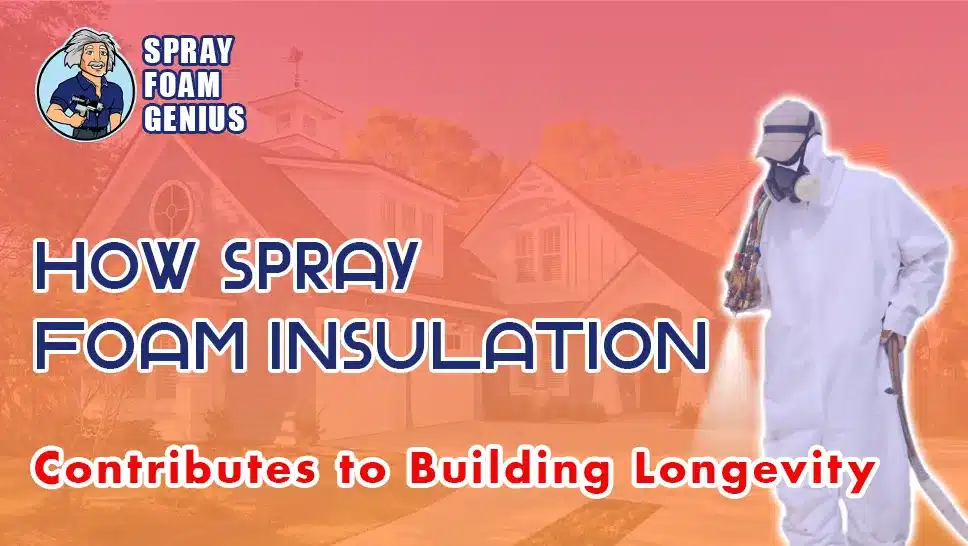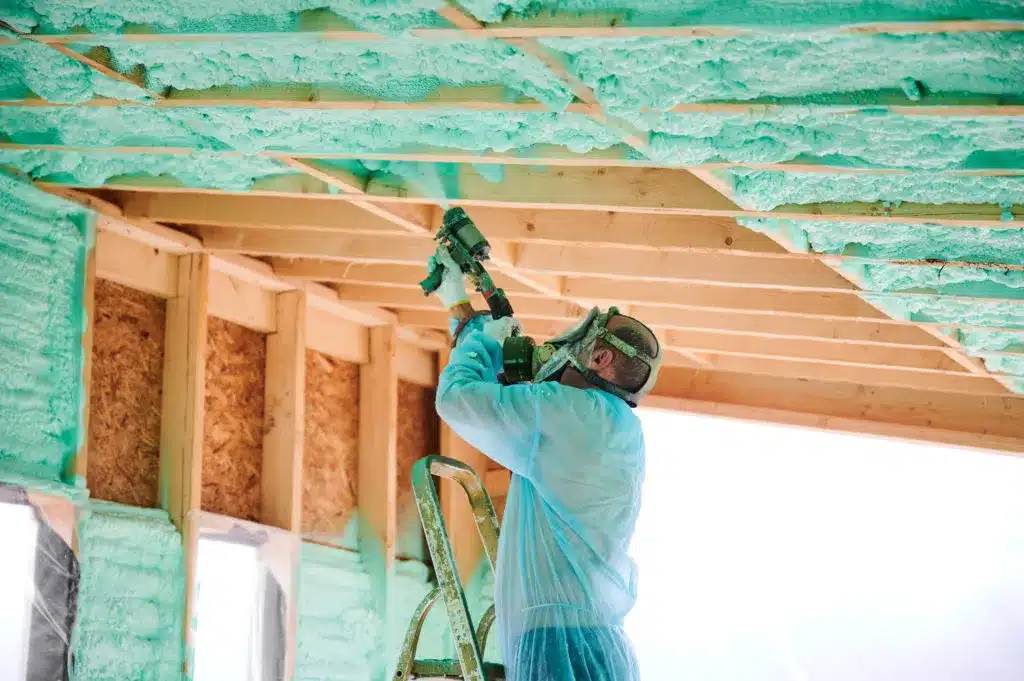
When it comes to ensuring the longevity and durability of buildings, spray foam insulation stands out as a revolutionary solution. At Spray Foam Genius Marketing, we specialize in providing SEO, Google My Business optimization, and digital marketing services tailored exclusively for spray foam insulation contractors across the USA and Canada. In this comprehensive guide, we explore how spray foam insulation enhances building longevity, discussing its benefits, addressing common concerns, and offering insights on how contractors can leverage this technology to their advantage.
Understanding Spray Foam Insulation
Spray foam insulation is a high-performance material known for its excellent thermal and air-sealing properties. It consists of two main components: polyurethane and isocyanate, which, when mixed and sprayed, expand to form a solid, seamless barrier. This barrier not only provides superior insulation but also contributes significantly to the overall durability of buildings.
Types of Spray Foam Insulation

There are two main types of spray foam insulation:
- Open-Cell Foam: This type of spray foam is lightweight and has a softer, more flexible texture. It is often used in interior applications where soundproofing and thermal insulation are essential.
- Closed-Cell Foam: Closed-cell spray foam is denser and more rigid, offering a higher R-value per inch and better moisture resistance. It is ideal for applications requiring high insulation values and moisture control, such as exterior walls and roofs.
Enhancing Building Durability
Spray foam insulation contributes to building longevity in several key ways:
Seamless Coverage and Air Sealing
One of the most significant advantages of spray foam insulation is its ability to provide seamless coverage. Unlike traditional insulation materials, which may leave gaps and seams, spray foam expands to fill every crack and void. This continuous barrier effectively prevents air leaks and drafts, which are common causes of energy loss and structural damage over time.
Strengthening Building Components
Spray foam insulation adheres to various surfaces, including wood, metal, and concrete, adding structural rigidity to walls, roofs, and floors. This added strength helps buildings withstand environmental stressors such as high winds, heavy rains, and extreme temperatures. By reinforcing the structural components, spray foam insulation contributes to the overall durability and longevity of the building.
Moisture Resistance and Mold Prevention
Moisture infiltration is a common problem that can lead to mold growth and deterioration of building materials. Spray foam insulation is inherently resistant to moisture, creating a barrier that helps keep water out. This moisture resistance reduces the risk of mold and mildew, which can compromise the structural integrity of the building and affect indoor air quality.
Improving Energy Efficiency
Energy efficiency is a crucial factor in building longevity, and spray foam insulation excels in this area:
Reduced Energy Consumption
Spray foam insulation provides an effective thermal barrier that minimizes heat transfer. This means buildings stay warmer in the winter and cooler in the summer, reducing the need for heating and cooling systems to work harder. The result is a significant reduction in energy consumption and lower utility bills.
Lower HVAC Maintenance Costs
By enhancing energy efficiency, spray foam insulation reduces the strain on HVAC systems. This leads to fewer repairs and lower maintenance costs, as the HVAC systems operate more efficiently and experience less wear and tear.
Long-Term Financial Savings
While the initial cost of spray foam insulation may be higher than traditional insulation options, the long-term savings are often substantial. Lower energy bills and reduced maintenance costs make spray foam insulation a cost-effective solution for building owners looking to invest in the longevity of their properties.
Environmental Impact
Spray foam insulation also has a positive impact on the environment:
Reduced Carbon Footprint
Improving energy efficiency with spray foam insulation leads to a reduction in overall carbon emissions. By decreasing the need for energy-intensive heating and cooling, spray foam insulation helps lower the carbon footprint of buildings, contributing to a more sustainable environment.
Sustainable Materials and Manufacturing
Many spray foam insulation products are made from sustainable materials and have low global warming potential (GWP). Manufacturers are increasingly focusing on creating environmentally friendly products that align with green building practices.
Recycling and Waste Reduction
Spray foam insulation is often recyclable, reducing the amount of waste that ends up in landfills. This supports environmental sustainability and contributes to a circular economy by minimizing waste and promoting resource efficiency.
Addressing Common Concerns
While spray foam insulation offers numerous benefits, it is essential to address some common concerns:
Cost Considerations
The initial cost of spray foam insulation is generally higher than that of traditional materials. However, the long-term savings on energy and maintenance often outweigh the upfront expense. Many contractors offer financing options to make the transition more manageable for clients.
Application Process
The application of spray foam insulation requires specialized equipment and expertise. Proper installation is crucial to achieving the best results. Contractors should ensure they have the necessary training and experience to apply spray foam insulation effectively.
Off-Gassing and Health Concerns
Some spray foam products may release volatile organic compounds (VOCs) during and after application. However, many manufacturers offer low-VOC or no-VOC options that minimize health and environmental impacts. It is important to choose high-quality products and ensure proper ventilation during and after installation to address any potential concerns.
The Role of Contractors in Promoting Longevity
As spray foam insulation contractors, you play a vital role in promoting the longevity of buildings through your expertise and services. Here are some ways to leverage your knowledge and enhance your business:
Educate Your Clients
Help clients understand the benefits of spray foam insulation and how it contributes to building longevity. Provide detailed explanations of how spray foam works, its advantages over traditional insulation materials, and the long-term benefits of its properties.
Showcase Your Expertise
Utilize digital marketing strategies to showcase your expertise and attract potential clients. Our specialized SEO and marketing services can help you enhance your online presence, improve search rankings, and generate high-quality leads. Highlight your successful projects and client testimonials to build trust and credibility.
Offer Comprehensive Solutions
Provide clients with comprehensive solutions that go beyond insulation installation. Offer additional services such as maintenance, inspections, and energy audits to demonstrate your commitment to their long-term satisfaction and the performance of their buildings.
Get in Touch with Us Today!
At Spray Foam Genius Marketing, we understand the unique needs of spray foam insulation contractors. Our specialized SEO, Google My Business optimization, and digital marketing services are designed to help you reach your target audience and grow your business.
Call us at 877-840-FOAM for USA and 844-741-FOAM for Canada visit our website at sprayfoamgeniusmarketing.com, or email us at [email protected] to get started.
Let us help you enhance your online presence and connect with clients who value the benefits of spray foam insulation.
- Social Media Marketing for Spray Foam Businesses: What Works in 2025? - February 6, 2025
- Best SEO Strategies for Spray Foam Insulation Contractors to Rank #1 on Google - February 6, 2025
- What is Spray Foam Insulation? Benefits and Applications - February 5, 2025

